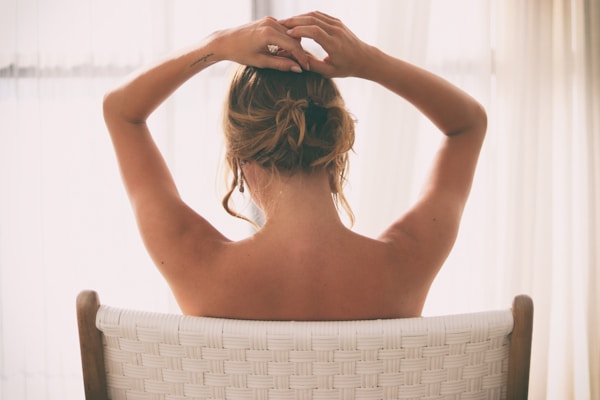There is no cure for eczema, but the symptoms can be managed with a combination of self-care measures and medication. The first step is to identify and avoid the triggers that cause your eczema to flare up. Keep reading to learn more about eczema and how to avoid its triggers.
Food Triggers

Food triggers are a common cause of eczema flares. Some people find that they have specific foods that trigger their eczema, while others find that their eczema is more generalized and flares up after eating any type of food. If you have eczema, it is important to keep a food diary to help you identify which foods are causing your flares.
If you can’t pinpoint your food triggers, you have other options. You may also want to take Eczema Pill, which is a Homeopathic and natural solution for eczema that consists of a blend of herbs and minerals. The ingredients in the pill may be effective in reducing inflammation, itching, and scaling. Be sure to talk to your doctor before starting a new herbal supplement.
Common food triggers include dairy products, nuts, eggs, soy, wheat, and shellfish. It’s important to note that not everyone with eczema will react to these foods. However, if you do react, it is best to avoid them altogether. Some food triggers may develop from foods you have a history of eating often. If this occurs, chat with your doctor and see if you can perform an allergy test to rule out a possible allergic reaction.
Stress Triggers

Stress triggers are a common cause of eczema flares. When you feel stressed, your body releases hormones such as cortisol that can trigger inflammation. This inflammation can lead to a flare-up of eczema symptoms. There are many different ways to manage stress and reduce its impact on your eczema. Some people find relief through exercise, meditation, or journaling. Others find that specific stress-relieving activity works best for them, such as yoga or aromatherapy. If stress is a frequent trigger for your eczema, it’s vital to find healthy ways to manage it. This will help keep your eczema under control and may also improve your overall quality of life. Don’t hesitate to seek help from a mental health professional if needed.
Hormonal Triggers
Many hormonal eczema triggers can cause flare-ups. For example, many women experience worsened eczema symptoms around the time of their period. This is thought to be due to the hormonal changes that occur during menstruation. Hormonal changes during pregnancy can also trigger eczema flare-ups. Some women find their eczema improves during pregnancy, while others experience worsened symptoms. Birth control pills can also trigger eczema flare-ups, as they contain estrogen and progesterone, which can affect the skin.
Environmental Triggers
If you are experiencing an eczema outbreak, try to identify and avoid any known environmental triggers. You may also want to consider wearing gloves when doing chores that expose your hands to harsh chemicals or allergens and avoid going outside when air pollution levels are high. Pollution is one of the most common environmental eczema triggers. It can be caused by various sources, including car exhaust, smoke from fires, and chemical pollutants in the air. Dust is another common trigger, as it can contain a variety of irritants that can aggravate eczema. There are a variety of other environmental eczema triggers that can cause an outbreak of eczema:
- Pets
- Smoke
- Chemicals
- Perfumes
Overall, it is important to be aware of the triggers for eczema and how to avoid them to reduce the chances of an outbreak. Some of the most common triggers include allergies, stress, and skin irritants. By being mindful of these triggers and taking steps to avoid them, eczema sufferers can often reduce the frequency and severity of their outbreaks.


